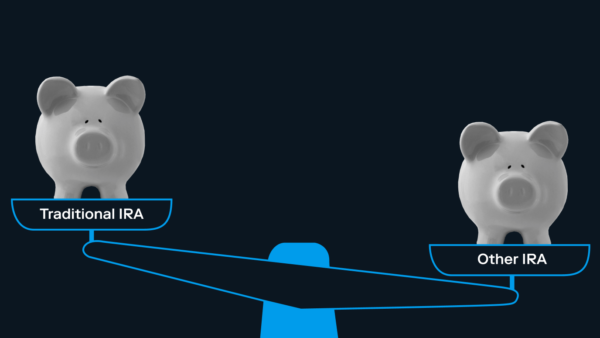Feb 15, 2023
What Is a Real Estate Investment Trust (REIT)?

A REIT, short for Real Estate Investment Trust, is a company that owns, operates, or finances income-producing real estate. The types of real estate can include a wide array of properties, from apartments to office buildings, shopping malls, hotels, resorts, self-storage facilities, warehouses, hospitals, infrastructure, and mortgages or loans. The company earns money from renting or leasing the real estate it owns or, in the case of mortgage REITs, from interest on mortgages and mortgage-backed securities.
Individual investors, like yourself, can buy shares in a REIT, which allows you to earn dividends, or a share of the company’s income. Since many everyday investors aren’t likely to have the cash to purchase, lease, and manage properties, REITs can allow more people to get exposure to the real estate sector in their investment portfolios.
In this article, we’ll cover:
How do Real Estate Investment Trusts work?
There are two primary ways people invest in the real estate sector: buying property or buying shares in a REIT. Congress established REITs in 1960 to lower the barrier and allow individual investors access to large-scale, income-producing real estate. Before 1960, that kind of investment was only available to those who could afford direct real estate investment through purchasing properties, such as wealthy individuals or companies, often using large financial intermediaries.
With REITs, investing in real estate is more accessible to the average individual. REITs work similarly to mutual funds by pooling the capital of many investors. Investors buy shares in a REIT, and can then earn dividends from the shares they own without having to purchase, manage, or finance property themselves.
Criteria to qualify as a REIT
REITs enjoy some special tax benefits, and real estate companies must meet several criteria set by the IRS to qualify as a REIT. First, REITs must primarily buy and operate properties as part of their investment portfolio, versus “flipping” real estate by purchasing, developing, and then reselling the properties. Further, a REIT must have the majority of its income and assets connected to real estate investments.
From there it gets a bit more complicated. Additional criteria for a REIT include:
- At least 90% of its taxable income must be distributed as dividends to shareholders annually
- At least 75% of its total assets must be invested in real estate and cash
- At least 75% of its gross income must be derived from real estate-related sources, including rent and interest on mortgages
- At least 95% of its gross income must be derived from real estate sources and dividends or interest from any source
- No more than 25% of its assets may consist of non-qualifying securities or stock in taxable REIT subsidiaries
- No more than 50% of its shares can be held by five or fewer individuals
- It must be an entity that would be taxable without the special REIT tax treatment
- It must have fully transferable shares
- It must have a minimum of 100 shareholders after its first year as a REIT
- It must be managed by a board of directors or trustees
Types of REITs
There are a few different types of real estate investment trusts. Most are publicly traded REITs, registered with the SEC and available for trading on major stock exchanges, similar to mutual funds. Others, known as non-traded REITs, are registered with the SEC but are not publicly traded. Finally, private REITs are neither registered with the SEC nor available on securities exchanges. REITs are further divided into three asset types:
- Equity REITs: The majority of REITs are publicly traded equity REITs that own or operate income-generating real estate
- Mortgage REITs: Also known as mREITs, these REITs hold mortgages on real property and earn income from the interest on those investments
- Hybrid REITs: This type of REIT takes a diversified approach, investing in both mortgages and properties
Equity REITs can be broken down even further based on types of property; it’s common for REITs to specialize in one type of property.
- Office REITs
- Industrial REITs
- Retail REITs
- Hospitality REITs
- Healthcare REITs
- Residential REITs
- Timberland REITs
Office REITs
Office REITs own and operate office real estate and rent space in those properties to businesses. The properties can range from office parks to skyscrapers. Some focus on specific types of tenants or markets as well. For example, an office REIT might primarily lease offices to biotech firms in suburban areas.
Industrial REITs
Industrial REITs own and manage industrial real estate spaces like warehouses and distribution centers. They generate income by renting out space in those properties. Industrial REITs are playing an increasingly important role in e-commerce and the demand for rapid delivery. Companies like Walmart and Amazon rely on industrial REITs for their delivery and distribution operations.
Retail REITs
Retail REITs focus on managing and renting space in outlet centers, large regional malls, strip malls, grocery-anchored shopping centers, and power centers that feature big-box retailers. For example, Tanger Outlets is one of the largest retail REITs in the U.S. The company’s shopping centers rent space to well-known retailers like Gap, H&M, and Nike.
Hospitality REITs
Hotels, motels, luxury resorts, and business-class hotels may all be owned and managed by hospitality REITs. They generate income by offering accommodations, conference venues, meals, beverages, and other services people need for large gatherings or when they travel. Many well-known hotel brands, including Hilton and Marriott, operate out of REIT-owned real estate.
Healthcare REITs
Hospitals, senior living facilities, medical offices, and skilled nursing facilities are among the properties developed, owned, and managed by healthcare REITs. Tennessee-based REIT Community Healthcare Trust, for example, has 161 properties across 34 states in its portfolio, including surgical centers, hospitals, physician clinics, and behavioral specialty facilities. Healthcare REITs may tend to generate a stable revenue stream due to the consistently high demand for healthcare-related services.
Residential REITs
These REITs specialize in apartment buildings, single-family homes, student housing, vacation homes, and manufactured homes. They generate revenue by renting space to tenants in those properties. Some residential REITs focus on specific geographical markets or property classes, such as high-rise buildings in urban areas or suburban, single-family family dwellings.
Timberland REITs
While other REITs concentrate on owning buildings or other facilities, timberland REITs focus on owning and managing land used to grow, harvest, and sell lumber. They sell to lumber mills and wood product manufacturing facilities owned by the REIT or a third party. Timberland REITs may also maximize the value of their land holdings by selling portions for other uses like housing or conservation.
Pros of investing in REIT stocks
The wide variety of REIT investment opportunities appeals to a lot of investors. And they allow you to diversify your portfolio by investing in the real estate sector, which is known for delivering steady income over time. Another upside for investors comes from the special tax advantages REITs enjoy. They’re allowed to deduct all the dividends they pay to shareholders from their taxable income, so they usually pay out 100% of their taxable income, which benefits both the company and the shareholders.
Additional benefits of investing in REITs include:
- They can be an accessible way to diversify your portfolio with real estate holdings, which can help protect your portfolio if other investments underperform
- They’re typically listed on national exchanges, making them accessible to investors
- They may help to protect your returns if other investments in your portfolio underperform during certain periods
- They’re known for generally paying healthy dividends and helping you build a passive income flow
- Unlike other stocks, which can choose whether or not to pay dividends, REITs are required to distribute profits via dividends
Cons of investing in REIT stocks
As with any type of investment, there are potential downsides to investing in REITs. In addition to the typical risks of investing, such as potential market volatility, REITs are subject to some variables specific to the real estate sector, such as the possibility that property values will decline or demand for rental space will fall. The way REIT dividend income is taxed may also be a deterrent, which is why some investors prefer to hold REIT shares in tax-advantaged retirement accounts.
The cons of investing in REITs include:
- REITs are especially sensitive to interest rates; when interest rates are high, REIT returns might fall because the company may depend on borrowed money to finance its real estate purchases
- You usually have to pay ordinary income tax on dividends, unlike other investments that may allow you to pay a lower capital gains tax rate
- REITs may have high up-front fees or sales commissions, along with annual management fees that can put a dent in your returns
- REITs are typically subject to the same risks as the real estate market, including fluctuations in property value and geographic demand
- Income is dependent on occupancy levels and the underlying business or industry that leases the properties
Diversifying your portfolio with REITs
When you’re looking for ways to diversify your portfolio, REITs could be one avenue to putting your money into another sector, giving you access to the expansive real estate market without buying or managing a property yourself. Diversification can be an important strategy for protecting your overall investments because losses in one asset class or sector can be balanced by gains in another. Many investors also appreciate earning passive income in the form of dividends.

Investing made easy.
Start today with any dollar amount.

Frequently asked questions about investing in REITs
How do you make money with a REIT?
Real estate investment trusts generate income for investors by distributing their profits in the form of dividends to shareholders. They earn profits either through renting space in the properties they own and manage or, in the case of mortgage REITs, through interest payments on the mortgages they own.
Is a REIT a good investment?
REITs can be a good way to invest in the real estate market if you don’t have the funds, time, and expertise to purchase and manage a property yourself. Some investors also put their money into REITs due to the typically healthy dividends. However, as with any investment, there are risks to consider.
Do REITs have to pay 90%?
Yes; to qualify as a REIT, the trust must distribute at least 90% of its taxable income to its shareholders.
Is a REIT better than stocks?
In the eyes of many experts, the value of REIT shares tends to be more stable than stocks. REITs have also outperformed stocks on 20-to-50-year horizons, as well as in the latest full year of data.
Why are REITs better than stocks?
Neither security is necessarily better or worse; it all depends on your investing goals. Many investors opt for REITs because they are guaranteed to pay dividends. Stocks, on the other hand, are not required to pay dividends, and even those who do may opt not to do so at times.
Do REITs have tax advantages?
REITs themselves enjoy special tax treatment; the company can deduct all of the dividends it pays to shareholders from its corporate income tax. For investors, however, there’s usually no tax advantage, and you may even pay more in taxes because REIT dividends are usually taxed at your normal income tax rate instead of the capital gains rate. That’s why some investors prefer to hold shares of REITs in tax-advantaged retirement accounts, like an IRA.
Related Articles

15 Largest AI Companies in 2024

The 12 Largest Cannabis Companies in 2024

What Is a Traditional IRA?

Saving vs. Investing: 2 Ways to Reach Your Financial Goals

How To Invest in the S&P 500: A Beginner’s Guide for 2024

Stock Market Holidays 2024





